Claims About Death Of Another Iranian Scientist Cannot Be Confirmed
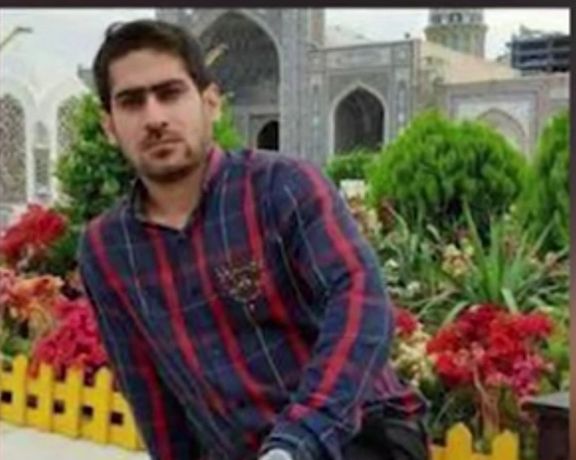
An Israeli website has reported the death of another Iranian scientist, but the report canot be confirmed by Iran International.

An Israeli website has reported the death of another Iranian scientist, but the report canot be confirmed by Iran International.
Ynet reported on Saturday that Kamran Mollapour, who was reportedly working at Natanz nuclear facility in central Iran, has died but it did not confirm or reject the possibility of assassination.
Despite Iranian some social media reports about Mollapour’s death, no Iranian official, state media or a source close to the alleged victim have mentioned it.
Conflicting reports are still circulating about the death of Iranian aerospace scientist Ayoob Entezari -- who held a PhD in mechanical and aerospace engineering -- with some calling it an assassination and government saying he died of food poisoning.
Late in May, an explosion in one of the research centers at Iran’s Parchin military complex near the capital Tehran killed engineer Ehsan Ghadbeigi and injured another employee.
A few days earlier, Iranian government and IRGC media confirmed the death of Colonel Ali Esmailzadeh also from the Quds Force, saying he died “in an incident in recent days” at his home without mentioning any details after Iran International quoted sources in Iran as saying that the IRGC killed him over suspicions of espionage.
He was a close colleague of Colonel Hassan Sayyad-Khodaei, the acting commander of the elite Qods Unit 840, who was earlier shot dead behind the wheel of his car outside his home in Tehran on May 22. The sources said that the IRGC became suspicious that Esmailzadeh divulged information about his colleague and decided to eliminate him.
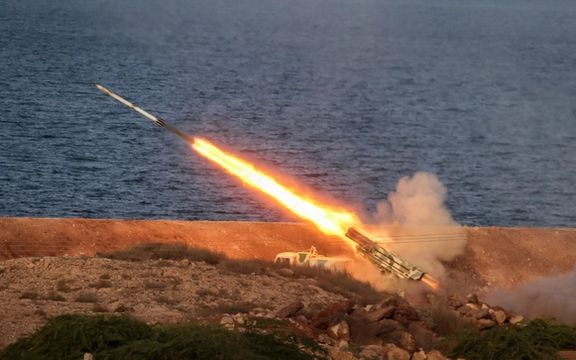
Pundits in Iran differ on the prospects of a nuclear deal, as a former diplomat warns that the current stalemate is leading Iran and Israel to a final conflict.
Former diplomat Fereydoun Majlesi offered Etemad Online a pessimistic assessment on Sunday [June 5]. "There is no hope in the nuclear negotiations to revive the JCPOA," he said, adding that everything is working against Iran and that Israel utterly threatens Tehran with air strikes on its nuclear sites.
Majlesi reminded that Israel has said war against the Islamic Republic will no longer remain limited to Israel and the areas at its borders and from now on it will strike the very country where threats emanate from.
In the meantime, Etemad Online observed that US State Department Spokesman Ned Price has said that an agreement might be within reach only if Iran gives up its maximalist positions. This is while Tehran repeats its demands and Iran watchers predict hard days ahead for Tehran.
Majlesi told Etemad Online that those responsible for the negotiations are taking it toward a "final solution" in which there is no hope for any positive result from the negotiations. "The group who wishes for the annihilation of Israel through jihad appear to be approaching a serious operational point," Majlesi said. He reiterated that the final solution means war and bloodshed.
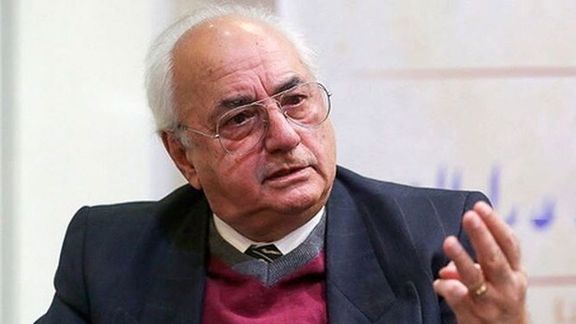
On the other hand, former lawmaker Mehrdad Lahouti says that there is a will in the Iranian government to make the negotiations fruitful and to lift the sanctions. Lahouti said he believes the talks will bear fruit as Iran is determined to secure an agreement with the United States, and President Joe Biden badly needs the agreement while Europeans can save face by being involved in a deal that reduces tension.
Lahouti told Nameh News that unlike what most people believe, the final decision-maker in Iran is not the Raisi Administration. He added that even under former president Hassan Rouhani in 2015, it was the “political order” that supported the deal and made sure that it was completed.
"Political order" is a jargon used by Islamic Republic officials to refer to Supreme Leader Ali Khamenei. "That was how the Iranian parliament managed to approve the deal [JCPOA] within 20 minutes," Lahouti maintained, adding that "If it was not for approval from the higher up, the Guardian Council would have stopped the ratification."
Lahouti's remarks appear even more optimistic than they look, as some hardliners are adamant to make sure that there will be no agreement. Hossein Shariatmadari, the editor of hardline daily Kayhan, which is linked to Khamenei’s office, told Didban Iran website that Iran should ban the IAEA inspectors' visit to its nuclear sites.
He added that "If Iran wanted it could have made nuclear weapons and the IAEA, the United States and Europe would have not been able to do a damn thing." He said: "We expect Iranian officials to ban IAEA inspectors visit to our sensitive nuclear and security sites in order to blind the eyes of the CIA and Mossad."
Shariatmadari claimed that "UNSC resolutions against Iran will have no value and this is something the United States and the three European states that have suggested to refer Iran's case to the Security Council know very well."
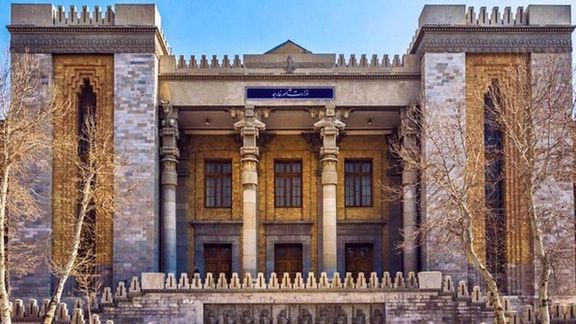
Iran’s Foreign Ministry summoned the Indian ambassador Sunday to protest remarks made during a TV debate about Islam’s Prophet Muhammad, deemed sacrilegious by Muslims.
The director general of the South Asia Department at the Foreign Ministry conveyed the strong protest of the Iranian government over the comments, which the Indian envoy described as not reflecting the position of the Indian government.
According to the Foreign Ministry website, the ambassador expressed regret over the comments made by two officials of the ruling party, clarifying that New Delhi reveres all religions.
“The BJP strongly denounces insult of any religious personalities of any religion. The Bharatiya Janata Party is also against any ideology which insults or demeans any sect or religion,” the ruling Bharatiya Janata Party (BJP) said in a statement issued on Sunday.
In recent remarks on a TV news debate, the BJP's spokesperson Nupur Sharma made inflammatory comments about the Prophet of Islam, which led to widespread condemnation in the country and also triggered protests in Uttar Pradesh’s Kanpur on Friday. The party suspended the spokesperson and also expelled Naveen Kumar Jindal, who heads its Delhi media, from the party. Sharma said that certain things from Islamic religious books could be mocked by people.
Qatar, Kuwait and Pakistan have also denounced the remarks made by the two BJP leaders with Kuwait and Qatar summoning the Indian envoys and Pakistani premier taking to Twitter to condemn the remarks.
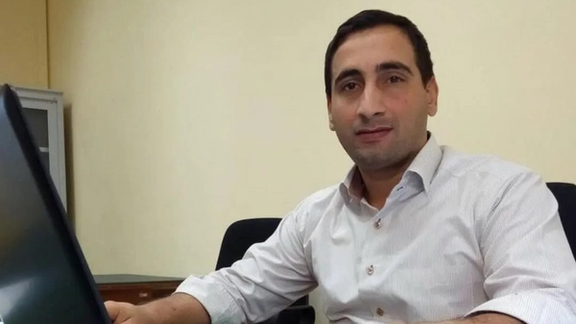
Conflicting reports circulate about the death of Iranian aerospace scientist Ayoob Entezari with some calling it an assassination and government saying he was ill.
The governor-general's office in the central province of Yazd handed a certificate to Entezari's family confirming his "martyrdom", a label the Islamic Republic uses for people who died in the line of duty for the country.
Yazd’s provincial judicial authorities, however, announced on Sunday that the news published in some media about the important work the aerospace scientist was doing is not true, insisting that he was an ordinary employee of an industrial company and died in hospital due to illness.
The judiciary claimed that one of Entezari's relatives had posted “these rumors” on his social media page to attract attention and was widely republished on other platforms.
The rumors and claims about Entezari’s death attracted unusual public interest because of a series of accidents and deaths related to researchers and protected nuclear and military installations in Iran in the past two years. It has been widely reported that Israel has been behind most of these incidents.
Enetzari by most accounts wroked for the government in developing drones, a field in which Iran has made significant progress in recent years and raised alarm with Israel.
Entezari, who held a PhD in mechanical and aerospace engineering from Tehran’s Sharif University, died last week with some reports mentioning food poisoning as the cause of his death. He reportedly took part in several projects at the Yazd Institute of Technology.
According to reports, Entezari returned home after a dinner meeting with symptoms of food poisoning and died in a hospital in Yazd as his condition worsened. Some sources also reported the disappearance of the person who had invited him, with some saying that he left the country immediately after the meeting.
The circumstances surrounding his death are shady as some people on social media say the Iranian scientist was killed and the Israeli Mossad is also mentioned in some reports as being responsible.
His death was covered widely across Israeli media as the case bears the hallmark of an assassination by poisoning, reminiscent of attempts portrayed in the TV series Tehran in which Israelis tried to kill the head of Iran’s Revolutionary Guard by a toxic agent.
Reports about Entezari’s fate came a day after Iran confirmed the death of a colonel from the Quds Force, Ali Esmailzadeh of the Islamic Revolutionary Guard Corps, the second in two weeks from the unit which allegedly oversees terror operations abroad.
Iranian government and IRGC media said that Col. Esmailzadeh died “in an incident in recent days” at his home without mentioning any details after Iran International quoted sources in Iran as saying that the IRGC killed him over suspicions of espionage. Officials of the Revolutionary Guard told Esmailzadeh’s family that the reason for his death was suicide.
He was a close colleague of Colonel Hassan Sayyad-Khodaei, the acting commander of the elite Qods Unit 840, who was earlier shot dead behind the wheel of his car outside his home in Tehran on May 22 by two gunmen who fled the scene on a motorbike. The sources said that the IRGC became suspicious that Esmailzadeh divulged information about his colleague and decided to eliminate him.
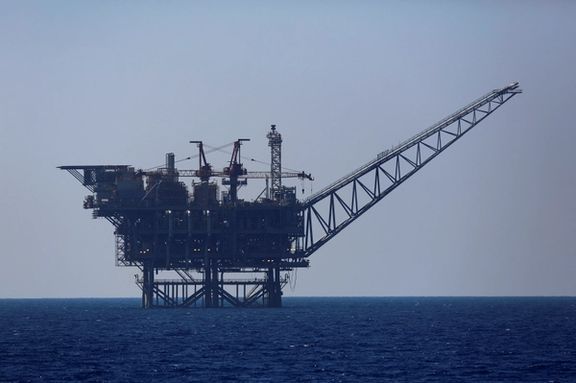
Tensions have risen between Israel and Lebanon after a natural gas production ship arrived off the coast in disputed waters to produce gas for Israel.
Lebanon warned Israel against any “aggressive action” when President Michel Aoun said any activity in the disputes area would amount to an act of aggression and a provocation.
Both countries are keen to develop considerable natural gas fields in the Mediterranean, but they have no diplomatic relations and Lebanese politics is dominated by Iran-backed militant Hezbollah group.
In 202 the United States tried to mediate between the two countries to reach a compromise over their maritime boundaries, but the indirect talks have not produce any results.
While Israel has more military and economic leverage to explore for gas, Lebanon’s military is no match, and it would not be easy for Beirut to secure participation by international investors. Lebanon desperately needs the potential income amid a catastrophic economic crisis since 2019.
There was no immediate response from Israel to Aoun's statement. Israeli Energy Minister Karine Elharrar welcomed the vessel's arrival and said she hoped it would be brought online quickly.
"We will continue to work to diversify the energy market and maintain stability and reliability," she said.
Gas production in eastern Mediterranean could potentially benefit Europe as it tries to replace Russian gas in the aftermath of Moscow’s invasion of Ukraine.
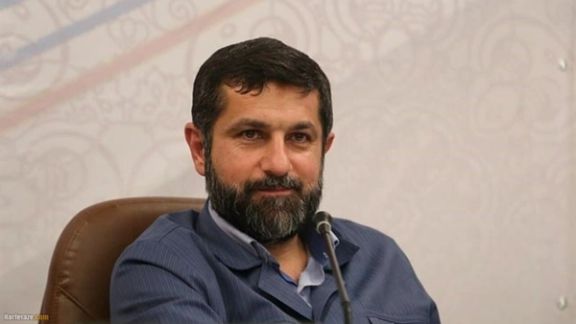
The former governor of Iran’s oil-rich Khuzestan province has left for Dubai, despite his potential culpability in the deadly collapse of a high-rise building.
The government’s official IRNA news website broke the news of Gholamreza Shariati’s move to leave the country, while several other current and former officials have been detained. He is said to have been one of the officials backing the owner of the building in his project that eventually violated many regulations.
The Metropol twin towers collapsed on May 23 burying more than 80 people under the rubble, with 42 bodies recovered so far, although the current governor insists that the number is 38. It is not clear what happened to the other 40 people who went missing, as most of the debris has been removed.
A report in local media said that 108 construction workers were on duty in each shift, in addition to businesses that had already opened their doors and visitors to the building. These numbers indicate that casualties could have been many more in the tragic event.
Immediately after the disaster it became apparent that the owner, Hossein Abdolbaghi, a well-connected businessman, had broken multiple regulations when constructing the building, having enjoyed the backing of officials.
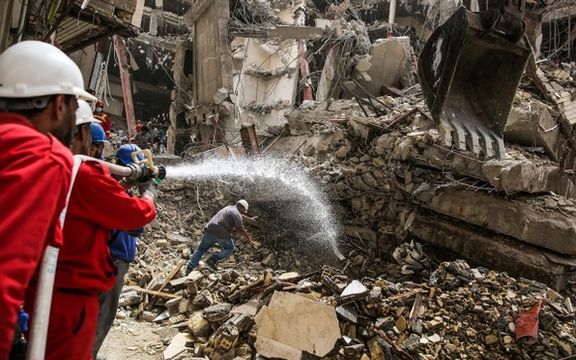
One prominent individual who appears to have been one of his protectors is the son of Ali Shamkhani, the secretary of the supreme national security council. Documents obtained by Iran International last week showed Mo’ud Shamkhani recommended Abdolbaghi to city authorities as a reliable businessman.
Shamkhani later denied any connections with the owner of Metropol.
But what the building owner did, was securing illegal permissions to build additional 5 floors, above the city’s building code allowing only 8-story-high structures. Metropol, which was almost completed when it collapsed had 13 floors.
The incident instantly became an example of government corruption and insider dealings by Islamic Republic officials and led to days of large anti-government protests in Khuzestan and elsewhere. The government deployed thousands of “anti-riot” special troops to Abadan and other cities in the province and arrested an unknown number of people, stopping the protests.
Abdolbaghi’s fate also remains uncertain. On the day of the incident, local law enforcement announced that the owner was arrested, but the following day, higher level officials claimed he had died in the incident and produced an unrecognizable body, which they claimed was Abdolbaghi and confirmed with DNA testing. Experts, on the other hand, insist that it would not be possible to complete a DNA identity authentication in a few days.
Rumors on social media said Abdolbaghi had left the country with the help of officials who were partners in crime, and he was possibly in Turkey. No one has been able to verify if he is dead or went abroad.
The controversy surrounding the Metropol towers is not the only scandal in which former governor Shariati has been implicated. In 2020, court proceedings in the case of an illegal privatization deal revealed that his wife tokk $200,000 in bribes from the owner of Haft-Tappeh sugar mill company to provide him cover when he failed to pay his workers for months.